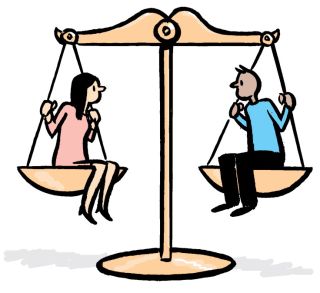Advice, Information and Legal Aid needed to ensure Equal Access to Justice

The full report of the Chief Justice’s Working Group on Access to Justice Conference, which took place on the 1st and 2nd October 2021 has just been published.
Access to Justice
The Report notes that “Equality before the law is a fundamental principle in a democratic state. To achieve it, there must be equal access to justice”. The Working Group was concerned with what barriers are in place, what then is needed to improve access to justice and a discussion of unmet legal needs. There is an acknowledgement that “the range of issues is wide and potential improvement requires action across many strands”.
Access to justice is a basic human right, however in order to achieve equality of access, there must be a balance of power on both sides. In a legal context, the balance of power almost always rests with those who can afford counsel. Redressing this balance requires the availability of free and low-cost legal services to those who need the advice of a qualified solicitor or barrister but who cannot afford the costs associated with it.
Clustered injustices
The Report makes reference to ‘clustered injustices’. For example, research on the cost of delivering access to justice and the related costs of not doing so from Professor Trevor Farrow noted that experiencing one problem can lead to multiple problems. And that the more problems one had, the increased likelihood of having even more problems to contend with. He “referred to a number of predictive variables, such as age, disability, number of children, income and gender”. His study also found that justiciable problems were a trigger for health and social problems. Dr. Tricia Keilthy, Head of Social Justice and Policy at the Society of St. Vincent de Paul, reported in one of the workshops that many of the issues that present for them such as “energy poverty, utility arrears, education costs, and food poverty, what is often in the background are legal issues, involving family law, housing issues, domestic violence, and debt”.
Need for early intervention
The need for accurate, accessible advice and information at the earliest possible stage was highlighted and the current level of unmet need was a concern. Importantly, information needed to be presented in clear simple terms. The Report noted the need for a review and reform of the current system of civil legal aid. Disadvantaged groups, in particular Travellers and Roma, alongside vulnerable individuals are found to be most in need and will therefore benefit more from increased access. The importance of community law centres was highlighted in meeting those needs.
Social Justice Ireland believes that access to justice is such a fundamental human right and calls on Government to ensure that people’s rights are protected and dignity respected in this most fundamental way, by adequate access to justice through the court system.